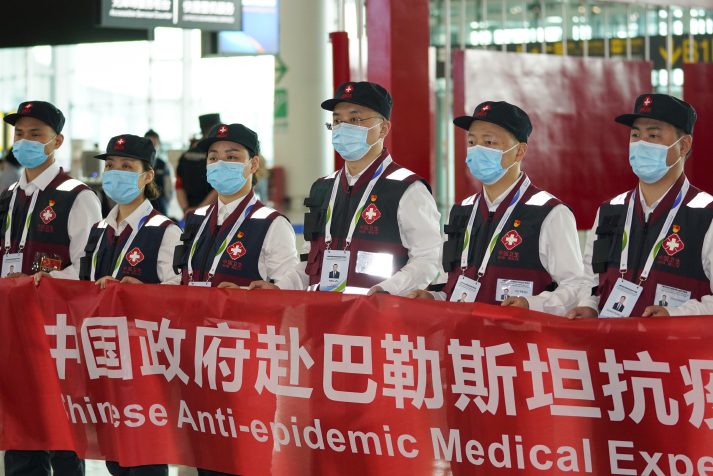| China |
| The language service industry in China has contributed to communication on public health | |
| Seeking to exchange information, knowledge and culture, language services have grown into a modern service industry with cross-language ability | |
|
|
 A Chinese anti-epidemic medical expert team leaves for Palestine to help in the fight against the novel coronavirus disease from the Jiangbei International Airport in Chongqing, southwest China, on June 10 (XINHUA)
During the novel coronavirus disease (COVID-19) prevention and control, the language service industry in China has contributed to communication on public health and promoted the country's experience in combating the virus in the international community. Seeking to exchange information, knowledge and culture, language services have grown into a modern service industry with cross-language ability. Due to the global pandemic, medical treatment cooperation between countries and regions has increased, from medical supplies exports to sharing experience in containment, where language services have become indispensable. For instance, at the early stage of the epidemic, the Beijing Advanced Innovation Center for Language Resources at the Beijing Language and Culture University developed A Guide to the Prevention and Control of COVID-19 Epidemic in Foreign Languages based on a guideline by the National Health Commission. It was translated into more than 40 languages to help foreigners know about disease prevention and treatment on Internet platforms. The growth of language service teams in the medical field reflects the results achieved in the cultivation of foreign language talents. Today, each country attaches great importance to investment in branded drugs and medical supplies production. That requires the medical industry to update by expanding its medical corpus, raising standards in medical product trade and enhancing general translators' knowledge of medical terms. For the language service industry, it is necessary to introduce more intelligent technology to hone translators' and interpreters' competitiveness. Besides language services, the industry can provide other services such as consultation. Universities and colleges should expand the talent pool by strengthening language professionals' intercultural communication ability and professional competence. (This is an edited excerpt of an article originally published in People's Daily on June 4)
(Print Edition Title: Language Bridges) |
|
||||||||||||||||||||||||||||
|